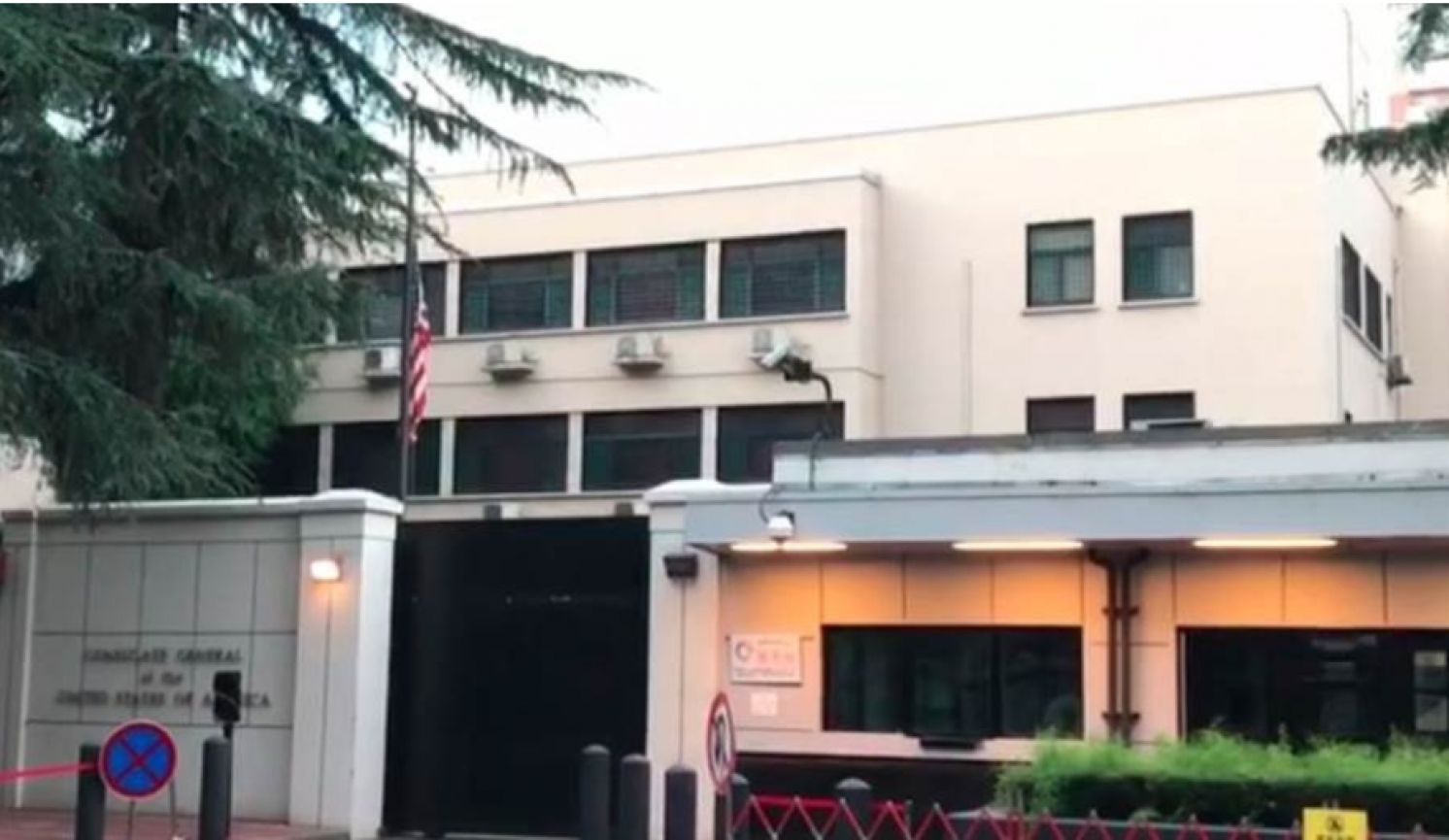
Consulates Shut Down as U.S.-China Relations Deteriorate
News Compiled and Reported by Taiwan Weekly
On July 21, the United States announced without warning that the Chinese Consulate General in Houston would be closing within 72 hours. On July 23, U.S. Secretary of State Mike Pompeo delivered a major speech on the Trump administration’s China policy at the Richard Nixon Presidential Library in California, pointing out that China is the biggest threat to the world. In his speech, Pompeo called for western countries to unite against Beijing. In response, in the morning of July 24, the Chinese Ministry of Foreign Affairs announced counter-measures to revoke the establishment and withdraw its consent for operation of the U.S. Consulate General in Chengdu.
At 4 PM on July 24, the Chinese diplomats of the Houston Consulate General lowered the flag, removed the national emblem, and evacuated before the closing deadline. When American officials took over, they found three major doors locked, which they broke in by force and had people guard the doors.
Spokesman Wang Wenbin of China’s Ministry of Foreign Affairs said that the diplomatic consulate is a property of China and that the United States must not trespass. Thus, the fact that the U.S. forcibly entered the consulate’s compound violates the regulations stated in the U.S.-China consular treaty. China expressed strong opposition and dissatisfaction, and lodged solemn representations.
Chinese Foreign Minister Wang Yi said on July 25 that China still hopes to achieve a non-conflict, non-confrontation, and win-win cooperation with the United States. Wang also added that China will not be provoked or disturbed by U.S. actions.
Pompeo mentioned in his speech titled “Communist China and the Future of the Free World” that when former President Richard Nixon began a relationship with China, the purpose was to promote China’s transition in pursuit of a freer and safer world. However, in exchange, the Chinese Communist Party exploited the American free and open society, penetrated their press conferences, campuses, and research centers, and used various interests to force American companies to yield to China. Pompeo also mentioned that Taiwan used to be marginalized at that time, but has now transformed into a thriving democracy.
Furthermore, Pompeo urges all countries to take immediate corresponding actions against CCP. He also said that various U.S. executive departments have taken counter-measures. For example, the U.S. Department of Defense has strengthened its freedom of navigation operations throughout the East and South China Seas and in the Taiwan Strait as well. In addition, the State Council closed the Chinese Consulate General in Houston this week because it has been hosting Chinese spies who steal U.S. intellectual property.
A senior official of the U.S. State Department told reporters that the Chinese consulate in Houston had instructed Chinese students and researchers to steal confidential scientific and technological research, including results on the new coronavirus (COVID-19) vaccine. This official also stated that “China has obvious intentions to become the first country on the market to launch a vaccine.”
In response to Pompeo’s speech, Taiwan’s Ministry of Foreign Affairs expressed its sincere gratitude to the U.S. government for speaking up for Taiwan in such a constant and public manner. No matter what means China takes to suppress Taiwan in the international community, the Taiwanese government will not back down. Instead, Taiwan will continue to work with the United States and other similarly-minded countries to fulfill the responsibilities as a member of the international community, and to defend the democratic system and maintain international order.
On July 27, the U.S. consulate in Chengdu was also closed with the American national emblem removed from the gate. Chinese Foreign Ministry spokesperson Wang Wenbin explained at the press conference that relevant personnel of the U.S. Consulate General in Chengdu have been engaged in activities that were inconsistent with their status. China has made representations many times, and United States is well aware of this. Wang also stated that the current negative situation between China and the United States is something China does not want to see, and the responsibility rests solely on the United States.
The consular area of the U.S. Consulate General in Chengdu covers a vast area of Southwest China, including the Sichuan Province, Yunnan Province, Guizhou Province, Tibet Autonomous Region, and the municipality of Chongqing. In 2013, Edward Snowden, a former employee of the U.S. National Security Agency (NSA) revealed a top-secret map showing surveillance facilities in embassies and consulates around the world, including the Chengdu Consulate. Regarding this spying plan, China had asked the United States to offer an explanation.
As for the Houston Consulate, it is the first Chinese consulate general established in the United States, and the only one in the southern region, with about 60 employees.
While the U.S. and China are at odds with each other, the Taiwan Strait and the South China Sea have not been peaceful either. On the night of July 23 and morning of July 24, Chinese Army aircrafts entered Taiwan’s air identification zone (ADIZ) twice. As a result, multiple batches of fighter jets from Taiwanese Air Force bases in Chiayi and Hualien had emergency take-offs to chase away these Chinese military aircrafts. The unusual military activities in the air attracted much attention from military experts.
Beginning from July 23, the Unite States has also dispatched several reconnaissance aircrafts flying across the Bashi Strait in southern Taiwan all the way towards the west to the coast of Guangdong. With both the U.S. and Chinese military aircrafts flying more frequently as if fighting in the dark for the airspace on the southwest of China, the tension in that region has risen drastically.